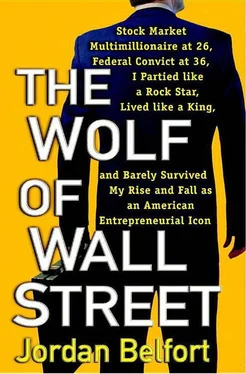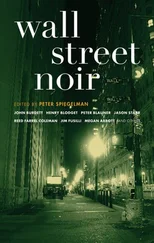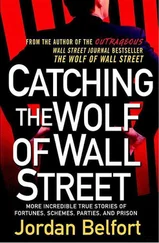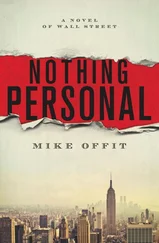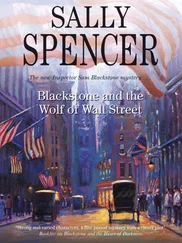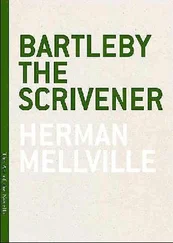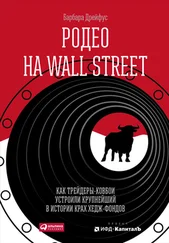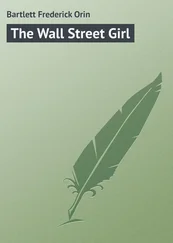I started laughing and shaking my head. “So what did you do?”
George rolled his fire hydrant of a neck. “What did I do? I wound up with all my might and I hit the driver’s side window so hard that it smashed into a thousand pieces. My hand landed directly on Kenton Rhodes’s left temple and knocked him unconscious, and his head fell right in his girlfriend’s lap, with those obnoxious Porsche sunglasses still on his face—except now they were all cockeyed.”
Through laughter, I said, “You get arrested?”
He shook his head. “Not exactly. See, now his girlfriend was screaming at the top of her lungs: ‘OhmyGod! OhmyGod! You killed him! You’re a maniac!’ And she jumps out of the car and runs over to the police station to get a cop. A few minutes later, Kenton Rhodes is just coming to, and his girlfriend is running back with a cop, who happens to be my good friend Pete Orlando. So she runs over to the driver’s side and helps Kenton Rhodes out of the car and brushes all the glass off him, and then the two of them start barking away at Pete Orlando, demanding that he arrest me.
“Annette comes running out, screaming, ‘He ripped up a ticket, Pete, and he threw it on the floor! He’s a goddamn litterbug and he parked in a fire zone!’ to which Pete walks around the back of the car and starts shaking his head gravely. Then he turns to Kenton Rhodes and says, ‘You’re parked in a fire zone; move your car right now or I’m having it towed.’ So Kenton Rhodes starts muttering under his breath, cursing out Pete Orlando as he gets in his car and slams the door shut. Then he turns on the ignition and puts the car in gear and starts backing up a few feet, at which point Pete holds up his hand and yells, ‘Stop! Get out of the car, sir!’ So Kenton Rhodes stops the car and gets out and says, ‘What now?’ and Pete says, ‘I smell alcohol on your breath; you’re gonna have to take a sobriety test.’ And now Kenton Rhodes starts muttering at Pete: ‘You don’t know who the fuck I am!’ and all the rest of that crap—and he was still muttering curses a minute later when Pete Orlando arrested him for drunk driving and slapped the cuffs on him.”
The three of us cackled for what had to be at least a minute; it was my first sober belly laugh in almost ten years. In fact, I couldn’t remember the last time I’d laughed so hard. The story had a message, of course—that back then George was newly sober, which is to say he wasn’t really sober at all. He might’ve stopped drinking, but he was still acting like a drunk.
Finally, George regained his composure and said, “Anyway, you’re a smart guy, so I think you got the point.”
I nodded. “Yeah, that wanting to kill my interventionist is not the act of a sober man.”
“Exactly,” he said. “It’s okay to think about it, to talk about it, to even make jokes about it. But to actually act on it—that’s the point where the question of sobriety raises itself.” He took a deep breath and let it out slowly. “I’ve been sober for more than twenty years now, and I still go to meetings every day—not just so I won’t drink alcohol but because, for me, sobriety means a lot more than not getting drunk. When I go to meetings and I see newcomers like you, it reminds me of how close I am to the edge and how easy it would be to slip off. It serves as a daily reminder not to pick up a drink. And when I see the old-timers there, people with thirty-plus years—even more sobriety than myself—it reminds me of how wonderful this program is and how many lives it’s saved.”
I nodded in understanding and said, “I wasn’t really gonna kill my interventionist, anyway. I just needed to hear myself talk about it a bit, to vent.” I shrugged and shook my head. “I guess when you look back at it now, you must be shocked that you actually did something like that to Kenton Rhodes. With twenty years sober, now you’d just turn the other cheek at an asshole like that, right?”
George gave me a look of pure incredulity. “You fucking kidding me? It wouldn’t matter if I had a hundred years sober. I’d still knock that bastard out just the same!” And we broke down hysterically once more, and we kept laughing and laughing, all the way through that wonderful summer of 1997, my first summer of sobriety.
In fact, I kept right on laughing—as did the Duchess—as we grew closer to George and Annette, and our old friends, one by one, faded into the woodwork. In fact, by the time I was celebrating my first year of sobriety, I had lost touch with almost everyone. The Bealls were still around, as were some of Nadine’s old friends, but people like Elliot Lavigne and Danny Porush and Rob Lorusso and Todd and Carolyn Garret could no longer be in my life.
Of course, people like Wigwam, and Bonnie and Ross, and some of my other childhood friends still showed up for an occasional dinner party and whatnot—but things would never be the same. The gravy train had officially stopped running, and the drugs, which had been the glue, were no longer there to hold us together. The Wolf of Wall Street had died that night in Boca Raton, Florida, overdosing in the kitchen of Dave and Laurie Beall. And what little of the Wolf still remained was extinguished when I met George B., who set me on a path of true sobriety.
Exempt from that, of course, was Alan Lipsky, my oldest and dearest friend, who’d been there long before any of this happened, long before I’d ever had that wild notion of bringing my own version of Wall Street out to Long Island—creating chaos and insanity among an entire generation of Long Islanders. It was sometime in the fall of 1997 when Alan came to me, saying that he couldn’t take it anymore, that he was sick and tired of losing his clients’ money and that he’d rather do nothing than keep Monroe Parker open. I couldn’t have agreed more, and Monroe Parker closed shortly thereafter. A few months later Biltmore followed suit, and the era of the Strattonite finally came to a close.
It was around the same time when I finally settled my lawsuit with Steve Madden. I ended up settling for a little over $5 million, a far cry from what the stock was actually worth. Nevertheless, as part of the settlement Steve was forced to sell my stock to a mutual fund, so neither of us got the full benefit. I would always look at Steve Madden as the one that got away, although, all in all, I still made over $20 million on the deal—no paltry sum, even by my outrageous standards.
Meanwhile, the Duchess and I had settled into a quieter, more modest lifestyle, slowly reducing the menagerie to a more reasonable level, which is to say, twelve in help. The first to go were Maria and Ignacio. Next came the Roccos, whom I’d always liked but no longer considered necessary. After all, without cocaine and Quaaludes fueling my paranoia, it seemed somewhat ridiculous to have a private security force working in a crimeless neighborhood. Bo had taken the dismissal in stride, telling me that he was just happy I’d made it through this whole thing alive. And while he never actually said it, I was pretty sure he felt guilty about things, although I don’t think he was aware of how desperate my drug addiction had become. After all, the Duchess and I had done a pretty good job of hiding it, hadn’t we? Or perhaps everyone knew exactly what was going on but figured as long as the goose kept laying his golden eggs, who cared if he killed himself?
Of course, Gwynne and Janet stayed on, and the subject of them being my chief enablers (outside the Duchess) was never brought up. Sometimes it’s easier to let sleeping dogs lie. Janet was an expert at burying the past, and Gwynne being a Southerner—well, to bury the past was the Southern way. Whatever the case, I loved both of them, and I knew they both loved me. The simple fact is that drug addiction is a fucked-up disease, and the lines of good judgment become very murky in the trenches, especially when you’re living Lifestyles of the Rich and Dysfunctional.
Читать дальше
